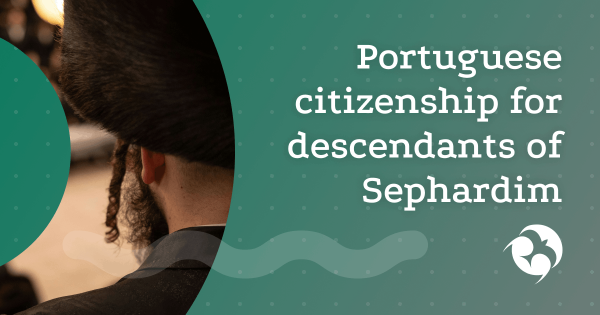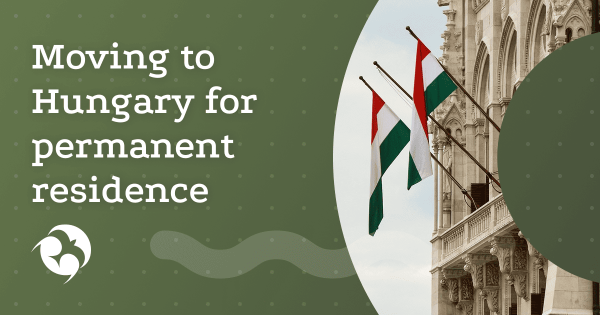The Portuguese citizenship program for the descendants of Sephardic Jews was introduced in 2015 as an amendment to the Law on Citizenship (Decree-Law No. 30-a/2015). The initiative is aimed at correcting the injustice that occurred more than 5 centuries ago. The essence of the program is the possibility of obtaining Portuguese citizenship for people whose ancestors were persecuted and expelled from the Iberian Peninsula.
The main feature is a simplified naturalization mechanism. Unlike the standard procedures for obtaining citizenship, descendants of Sephardic Jews did not initially require knowledge of Portuguese or residence in the country for 5 years. The applicants only needed to prove that they belonged to the Sephardic community of Portuguese origin.
Conditions have changed significantly in 2022-2024. In February 2024, Portuguese President Marcelo Rebelo de Souza ratified a new law, according to which applicants are now required not only to prove a connection with Portugal, but also to live in the country for at least 3 years.
Descendants of Sephardic Jews who are able to document their belonging to an ethnic group can participate in the program. To do this, you must obtain a certificate from the Jewish community of Porto or Lisbon. Today, the opportunity is open to anyone who can prove a kinship with the Sephardim expelled from Portugal.
In 2021, the application procedure was upgraded. The whole process has been converted to an online format. This significantly accelerated the processing of documents.
The main conditions of the program
Grounds
The right to citizenship is granted upon documentary confirmation of Sephardic origin, either directly or indirectly. Since 2022, the government has tightened the criteria. In addition to a certificate from the Jewish communities of Lisbon or Porto, proof of connection with Portugal is required. The following arguments are accepted:
- a family tree showing the ancestors who left the country in the XV–XVII centuries;
- surnames included in the historical registers of exiled Jews;
- the use of Ladino language in family correspondence or religious rituals;
- documents on hereditary real estate that has been passed down through generations.
Requirements for the applicant
The person submitting the request must meet 4 criteria:
- Coming of age.
- No criminal record. Applications are not accepted from persons convicted of crimes with a penalty of 3 years or more in prison. The check is carried out in all countries of residence of the applicant after the age of 16.
- No links to terrorist organizations or involvement in activities that threaten Portugal’s national security.
- A detailed dossier with all the certificates, certificates, and acts, including those from the archives.
Terms of review
The official processing period is 29 months, but the actual timeframe is 3-4 years. Reasons for delays:
- The burden on migration services;
- The analysis of genealogical data and historical references takes up to 18 months;
- The introduction of new requirements (for example, confirmation of communication with the country) has increased the complexity of the procedure.
After receiving a positive decision, a Portuguese passport is issued within 2-4 months.
Basic expenses
| Expense item | Cost | Note |
| Certificate from the Jewish community | 500€ | Certificate from the Israelite Community of Lisbon (CIL). For the main applicant. For other descendants – 250€ |
| State duty | 250€ | Payment to the Portuguese government for reviewing the citizenship application |
| Sending documents for registration | 250 reais (≈45€) | The cost of sending documents to the Portuguese registration authority |
| DNA test (if necessary) | 800 reais (≈145€) | It may be necessary to confirm kinship with alleged Sephardic ancestors |
| Getting archived documents | 150 reais (≈27€) | Photos of archival documents confirming the origin |
| Birth certificates and other documents | 80-150 reais (≈14-27€) per document | Prices vary depending on the region |
| Apostille of documents | 47-150 reais (≈8-27€) per document | The cost of the apostille depends on the country of issue of the document |
| Translation certification | 35€ per document | Translation and certification of required documents |
| Certification with apostille | 50€ per document | Combined translation and apostille certification service |
| Legal services | Varies | The cost depends on the volume of services – from consultation to full process support |
Step-by-step application submission
The procedure for obtaining Portuguese citizenship for descendants of Sephardic Jews includes several successive stages. Starting from proof of origin and ending with the submission of documents to the migration services.
Step 1. Genealogical research
The first step is to collect evidence of Sephardic origin. For this purpose, archival records of synagogues, metric books, wills and family heirlooms are analyzed. Since 2024, confirmation of a connection with Portugal has become a prerequisite. This can be done through documents on hereditary real estate or regular trips to the country.
Professional genealogical agencies help to restore the family tree to the XV–XVII centuries. The average cost of services varies from 3,000€ to 15,000€. The study period takes 6-18 months.
Step 2. Obtaining a certificate from the Jewish community
The documents are sent to one of the two accredited communities in Lisbon (Comunidade Israelita de Lisboa) or Porto (Comunidade Israelita do Porto). The procedure has been partially automated since 2022. Applications are submitted online through the Sefarad Portal platform. This shortened the review period from 12 to 4 months.
Communities check the coincidence of surnames with historical registers, the use of the Ladino language in family correspondence, and the participation of ancestors in Sephardic religious rituals.
Step 3. Document preparation
The applicant’s dossier should include:
- Birth certificate with apostille and Portuguese translation (cost 50-120€ per document).
- A criminal record certificate from all countries where the applicant lived after the age of 16 (85-200 €).
- A certificate from the community indicating the full name, date of birth and genealogical ties.
A statement addressed to the Minister of Justice in Portuguese, describing the family’s history and connection to Portugal.
Step 4. Application Submission
The documents are sent to the Conservatória dos Registos Centrais (Lisbon) in person, through a representative or online. From February 2024, electronic submission via the Nacionalidade Online.
The state fee is 250€ for adults and 125€ for minors. After payment, the applicant receives a case number to track the status.
What happens when citizenship is approved
After a positive decision by the Portuguese migration authorities, the status formalization process takes 2-4 months. The Central Registry (Conservatória dos Registos Centrais) sends the Naturalization Certificate to the applicant. This is a document on stamped paper with a unique registration number and the signature of the Minister of Justice. At this stage, the previous migration statuses (residence permit/permanent residence) are automatically cancelled. The data of the new citizen is entered into the National Register of Civil Status Acts.
Registration with the tax service takes place automatically upon entry into the register of citizens (a NIF identification number is assigned). The right to vote is activated 90 days after receiving the Cartão de Cidadão internal passport. Admission to the healthcare system requires a personal visit to the local office of Serviço Nacional de Saúde with an ID card.
How to get a Portuguese passport
After the approval of citizenship, the stage of paperwork begins. Cartão de Cidadão. This is a mandatory identifier, without which it is impossible to obtain a passport. The procedure consists of 2 stages: obtaining an ID card and applying for a passport.
Step 1. Making Cartão de Cidadão. Produced in Portugal through the Instituto dos Registos e Notariado (IRN) or the government’s online platform gov.pt . Abroad, the request is submitted at the consulate. The standard document processing mode is 10-20 business days (cost 15€). Express consideration is provided for 2-5 working days and an additional payment of 50 €.
A new biometric Cartão de Cidadão with a contactless chip has been in effect since June 2024. The card is compatible with public transport systems and electronic tickets, which simplifies integration into the EU digital infrastructure.
Step 2. Apply for a passport. To do this, you need to have a valid Cartão de Cidadão, provide a completed application form and a receipt for payment of the state fee. If you request in Portugal, the standard period is 5 working days (cost 65€). Urgent processing will take 1-2 business days (100€). If the request is submitted at a consulate abroad, the time limit increases to 4-8 weeks due to logistics.
What’s next?
After receiving a passport, a new citizen gets full access to EU social guarantees and global mobility. Portuguese identity card (as of 2025) in the passport index Passport Index is in 3rd place. This means that its holder has visa-free (or simplified) access to 189 countries around the world.
The status of a citizen gives you the full right to live, find employment, study and run a business not only in Portugal itself, but also in any other EU country on equal terms with local residents. The rights include access to social security, health care (Serviço Nacional de Saúde – SNS) and education on national terms.
However, it is important to understand that with rights come responsibilities. First of all, tax payments. The key point is to determine the status of a tax resident. A person is considered a Portuguese tax resident if he spends more than 183 days in the country during the tax year (calendar year) or has permanent residence in Portugal as of December 31 of the reporting year. Learn more our experts told us about the Portuguese tax system earlier.
What should family members do?
The citizenship restoration program for Sephardic Jews also applies to immediate family members. Spouses and minor children of new citizens can obtain the status through family reunification, but this requires the fulfillment of specific conditions.
The spouses’ right to citizenship arises in one of two cases:
- The marriage lasts from 3 years. Provided that the Portuguese spouse has a resident status and has been living in the country for at least 2 years.
- Marriage from 6 years. In this case, the spouse’s residence is not required. The connection with Portugal is considered automatically confirmed under the terms of the program.
In both cases, you must provide a marriage certificate, translated into Portuguese and certified with an apostille, and a certificate of no criminal record. For couples in an unregistered union, judicial recognition of the actual marriage (união de facto) is required on the basis of joint household management, common accounts or witness testimony.
Children under the age of 18 receive citizenship automatically after the naturalization of a Sephardic parent. If the child was born before the registration of the status, it is necessary to submit a separate application to the Conservatória dos Registos Centrais with the appropriate package of documents. For children over the age of 10, an interview is conducted at the migration service.

- We will answer all your questions
- We will help you choose the best option
- We will guide you through every step or do everything for you
Expert support at every stage
Our company’s lawyers in Portugal provide a full range of services for applicants for Sephardic citizenship. A team of experts takes over all the processes and accompanies each application. Thanks to well-established procedures, we help to process accelerated requests for citizenship, family reunification or the purchase of real estate. Professional support is guaranteed to shorten the period for obtaining a passport to the minimum possible.
In 2025, Portugal retains the status of one of the most accessible destinations for obtaining EU citizenship through the repatriation program for Sephardic Jews. Despite the stricter requirements, the key advantages of Portuguese citizenship remain unchanged:
- Visa-free entry to 180+ countries (including the EU, USA and Canada);
- The right to reside, find employment, and study in any EU country;
- Access to social security;
- The opportunity to have dual citizenship (including Russian).
The program continues to evolve. In recent years, a digital platform has been introduced and preferential tariffs for issuing passports for family members have been introduced. However, potential applicants should consider the government’s plans to extend the naturalization period to 10 years for non-residents. And this, in turn, may affect future legislative changes.













